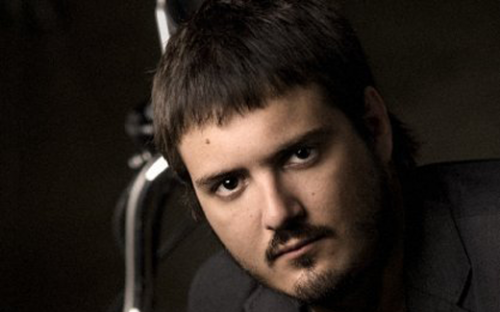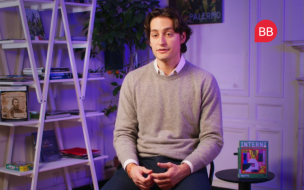Juan Alejandro Virgili is an MBA with a passion for the healthcare industry. He has always had a desire to help others improve their lives and spent time in Southeast Africa dedicated to the discovery of the RTS,S Malaria Vaccine. He worked with the Gates Foundation, one of the largest charities in the world, in a role dedicated to discovering treatments to other infectious diseases.
He has been a part of the Spanish Network of Multiple Sclerosis, a Government network dedicated to the chronic, disabling disease that attacks the central nervous system, for almost three years. He established a new research unit in the Hospital Clinic De Barcelona, the largest biomedical research institution in Spain, four years ago and finished studying an MBA at IESE Business School in June.
Juan has since designed and created his own bioinformatics start-up venture, Pepper Biology, and hopes to launch within six months. IESE is the number-one ranked b-school in Spain and Juan left his healthcare career behind to enroll in Barcelona. But it is surprising to hear that he doesn’t think his knowledge will be worth much in five years’ time. “I’ve realized that good business is about attitude, because knowledge changes and will be obsolete in five years’ time,” he said of studying an MBA at IESE.
“At some point I realized that if I wanted to aspire to the grand roles or to start my own business I would need the best knowledge and the contacts to do so; it’s a huge part of success. But what’s important is your attitude; what are your aspirations; your ethical values; how bad to you want to get what you want.”
Juan, 29, considered studying at Harvard and London Business School but decided to stay closer to his home, Spain, where he has since had a daughter. He respected IESE because of its admirable work ethics, and took an international exchange to study at LBS in 2012.
But Juan began life as a journalist; he is used to this interview process. Back in 2006, he wrote for the leading Spanish and Latin American news journal, Lavanguardia, and was the youngest journalist in the company’s history to get his own opinion column. He has also published two books of historical fiction; one topping 20,000 reads, and it was then that the young journalist realized his ambition to switch careers. “Ever since I was a journo, my dream was to work in Africa,” he said.
“There was just some serendipity that started back when I was working in Africa and I hope to eventually be able to help people’s lives become better."
Juan has certainly proved thus so far. He was the Project Manager at a research center in Mozambique one winter, developing a communication program to recruit native patients for Phase lll research of a vaccine to cure Malaria. “It was a huge challenge volunteering in Mozambique; in an area with no roads, media or communications, and in a country roughly the size of Wales that speaks eighteen different languages," he said.
His work with the Spanish Network of Multiple Sclerosis, which he left to study an MBA, led to the creation of a network of 400 researchers dedicated to researching therapies to treat the disease. He used his business knowledge to build a stronger relationship with the Ministries of Health and Research – a political landscape that is incredibly difficult to operate in, Juan tells me. “The Ministry of Health decided to unite each rare disease lab into one common organization,” he said.
“They needed someone to carry the administration side and I had the right background.”
He says that the biggest challenge he faced in developing a research unit in the healthcare industry was the stringent traditions of the key players in Spain. “It’s a bit strange but in Spain there’s still this feeling of tradition,” he said. “This is an organization that’s been here for three centuries but we are still interested in who has been working here the longest: those are the people that have the most say.
“But in other countries like the UK, the brightest people get to be the ones leading the organization. Here, we are stuck. Research institutes and made up half of politicians.
“Thirty to forty per cent of my time there was spent playing politics, just to implement things that were in our power already! We wanted to use ten per cent of our funds to hire a new person, for example, but it was a sheer waste of time. It was a huge mess.”
Keen to stick within the healthcare industry, Juan is developing his bioinformatics business in Barcelona. His dream is to become a health provider across the whole of Spain. “Pepper Biology is something you have to work on every day, in nonstop meetings, and you have to be passionate about your research all the time,” he said.
“I want to open an office in London; the UK is the only country at the moment with a quality workforce in the industry. I would love to become a wide provider, in all of Spain, and to expand to the other markets in Europe like Italy, Portugal and other southern countries in Europe.”
Juan is confident. He believes he can succeed in healthcare and he has a passion to help others improve their lives. His work with the Gates Foundation in Mozambique, Africa, was the catalyst for his career switch from journalism. But his MBA from IESE Business School gave him the business knowledge and contacts to, he hopes, reach the top of the industry.
RECAPTHA :
88
7c
05
21








